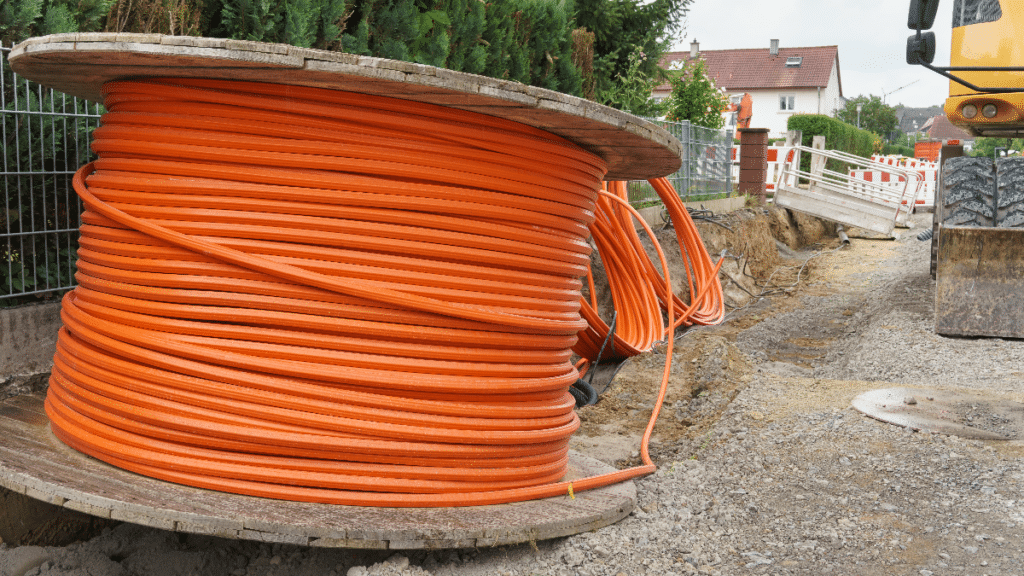How Not To Help Close the Digital Divide
Chris Lewis / Mar 13, 2023Chris Lewis is the President and CEO of Public Knowledge.

If you’re a person living in the United States without quality broadband, you should be very disappointed in the way your elected officials have failed to meet the challenge of closing the digital divide in the last week.
There is bipartisan agreement on the importance of closing the digital divide and that the effort will take more than the billions of dollars effectively given to the broadband industry in the bipartisan infrastructure package last Congress. Administration officials and bipartisan leaders in Congress promote the need for quality oversight, proactive regulatory policy, and long-term affordability solutions, but in Washington, actions speak far louder than words. Judging by their actions last week, elected officials have struck out.
Strike One (March 7): The 15-month failure to seat a full 5-member Federal Communications Commission.
After three hearings and registering the support of 400 organizations across the political spectrum and 400,000 citizens, the Biden administration and U.S. Senate gave the broadband industry exactly what it wanted – two years (or more) of a deadlocked FCC. This nomination process was a shameful display of the power of misinformation and homophobia at work in the nation.
Up against corporate interests and dark money funding congressional accounts, it’s clear that Gigi Sohn – a long time telecommunications expert and passionate advocate for expanding broadband access for everyone – never stood a chance. A deadlocked FCC jeopardizes the agency’s effort to improve broadband maps showing who has or doesn’t have quality service, efforts to improve broadband reliability standards gutted in the previous administration, and rules preventing digital redlining of low-income neighborhoods which industry players deny despite years of studies demonstrating its impact.
While Republicans may have led the false, personal attacks and broadband providers may have paid for them, the Democratic party allowed the attacks to happen and then sat back and did nothing – curious behavior from the party championing the need to close the digital divide. As the White House looks for the next nominee, we will be looking for a candidate that has a real depth of experience in telecommunications law, not from a telecommunications or cable company, and – like the Chair of the FCC – has a demonstrated record of support for reinstatement of FCC authority over broadband so we can bring consumer protections into the digital era.
Strike Two (March 8): The failure to renew the FCC’s authority to auction spectrum.
For the past 30 years, the U.S. has renewed the FCC’s authority to auction spectrum without fail – until now. Congress just allowed this authority to expire. Fortunately, there are no auctions underway and none on the immediate horizon, so this lapse will not cause permanent damage to the FCC’s ability to conduct auctions so long as it is short-lived. But, what it does demonstrate is that there is serious dysfunction in the body politic, and this dysfunction has consequences for those on the wrong side of the digital divide.
As a nation, the U.S. has led the world on spectrum policy, innovating and diversifying the way in which it manages to provide spectrum (and therefore, internet) access on a licensed, unlicensed, and shared basis. This diversification is important in helping close the digital divide because it helps foster access for all consumers and delivers benefits to industries, including precision agriculture, shipping and manufacturing, and on Tribal lands where the digital divide is greatest. We need to restore a data-driven, engineering-based approach to spectrum and if Congress can’t be counted on to renew the FCC’s auction authority, it may be time for Congress to permanently extend it so this important policy is not subject to political whims.
Strike Three (March 9): The failure to provide additional funds to the Affordable Connectivity Fund.
Despite lavishing praise on the Affordable Connectivity Fund (ACP) as a critical initiative to make broadband affordable for low-income families, the Biden administration’s budget proposal makes no request for additional funding. Instead, the budget relies on an optimistic timeline for existing funding to last.
Helping low-income families gain access to affordable broadband, the essential service of our time, is bedrock to ensuring all can thrive in this digital economy. We learned this tough lesson during the pandemic and Congress, on a bipartisan basis, established a low-income broadband affordability program to help low-income and veteran families get connected. The success of the ACP has been incredible, with 16 million of the estimated 40 million eligible households subscribing. The ACP closes the homework gap for low-income students, connects the jobless to new work opportunities, and connects many to critical telemedicine services, including veterans. Consumer and public interest groups, civil society, broadband providers, Republicans and Democrats support the program. The upcoming funding for state broadband infrastructure and the Treasury’s Capital Projects Fund include the ACP as a critical component for approval because ACP helps make these projects viable.
While estimates suggest that the program could run out of funds next year, the White House seems comfortable banking on smaller demand on these funds, leaving out the estimated 24 million eligible American households who have not yet signed up. Some have suggested that it is smarter politics to wait until the last minute to ask for more money, but as the failure to renew FCC auction authority and the failure to get Sohn confirmed to the FCC both show, it’s risky to assume even a popular and effective program like the ACP can get through this Congress without a determined and lengthy fight.
Rather than risk the connectivity of so many low-income families with a future manufactured crisis, the Biden administration should be showing leadership and rallying industry and popular support to get the program the funding it needs. People forced to live paycheck to paycheck should not endure additional uncertainty in their lifeline to the digital economy.
We deserve better. We showed during COVID-19 that we can come together and undertake serious work to bring real change to the lives of Americans. The American Rescue Plan, the CARES Act, and the Infrastructure Investment and Jobs Act, which provided funding for broadband deployment, affordability and digital skills training are ready examples of the government working well. But it takes strong leadership and a willingness to see things through rather than proposing (or not proposing) things and hoping for the best.
- - -
To finish the baseball analogy, the U.S. struck out last week, but the game isn’t over. The public will be watching to see if the Administration takes steps to achieve the broadband agenda it has touted. This starts with getting a well-qualified fifth commissioner confirmed to the FCC immediately, but also includes strong anti-discrimination rules called for by law and restoring the FCC’s Title II authority over broadband so the agency can protect more consumers over this essential network. This is what President Biden has said he expects, and it is what the Chair of the FCC has said she supports. It is time for action on these goals. The public expects and demands more.
Authors
